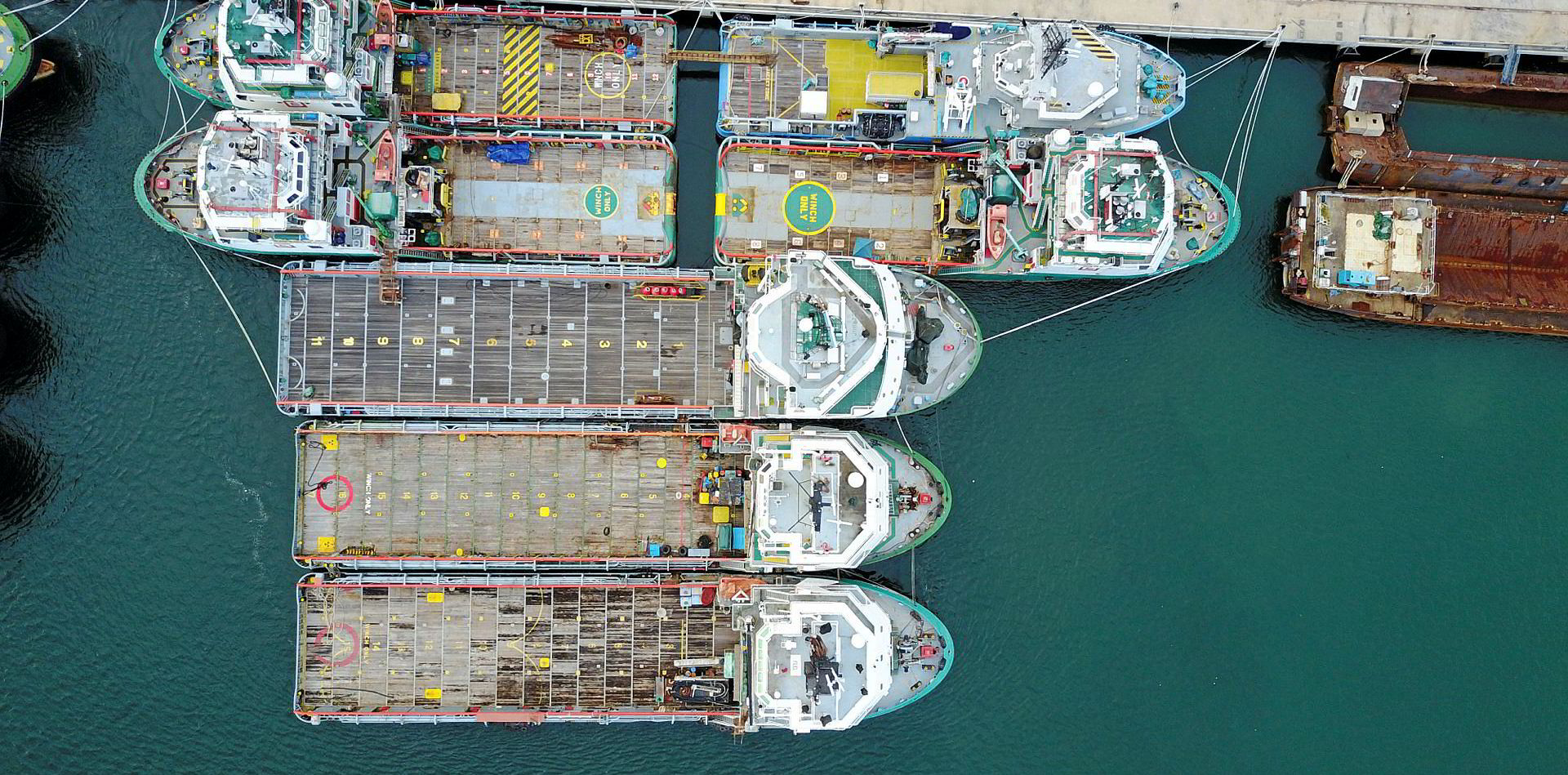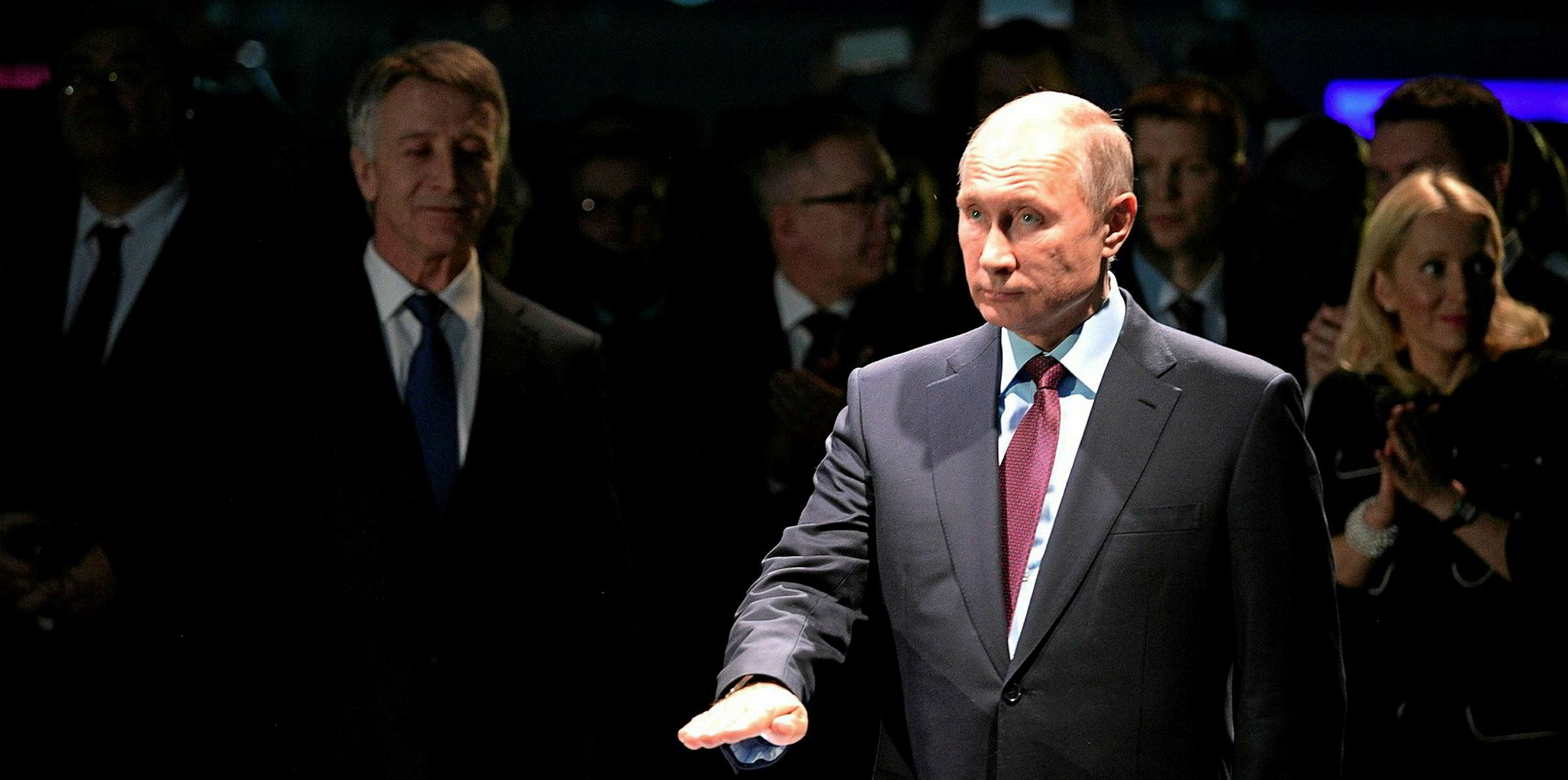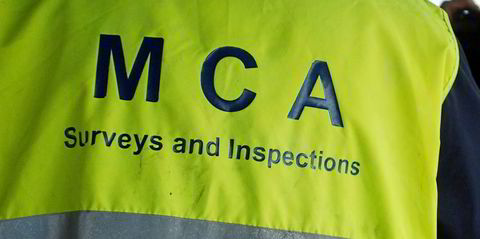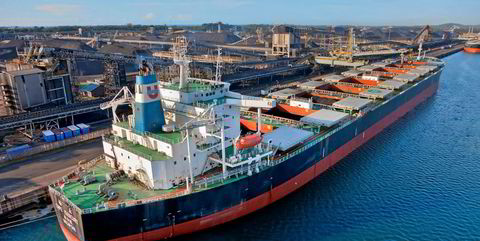UK shipbroker Clarksons said it is "already clear" that the coronavirus outbreak will hit its result this year, after a stronger 2019.
The warning came as the company logged annual underlying profit before tax of £49.3m ($65m), which was better than the £45.3m in 2018.
Chairman Sir Bill Thomas said the medium-term macro environment for shipping continued to be favourable as demand/supply dynamics improve and as sustainability-driven regulatory changes such as IMO 2020 move apace.
"However, since the beginning of the year, the outbreak of the Covid-19 virus in Asia has contributed to significantly reduced short-term freight rates," he added.
"The extent of its geographical reach and duration will determine by how much global GDP may be challenged, although it does already seem clear that the company's performance will be impacted in the first half of 2020."
The net loss was £10.9m, compared to a profit of £32.7m in 2018, due to a non-cash goodwill impairment of $47.5m arising from its 2015 takeover of RS Platou.
Revenue grew to £363m from £337.6m.
Broking strong but financial services hit
"2019 delivered robust underlying financial results and strong free cash flow generation, which has enabled us to increase the dividend for the 17th consecutive year," chief executive Andi Case said.
"An excellent performance in our broking, support and research businesses offset weakness in our financial services business. Clarksons has a strong balance sheet and a leading market position across most verticals in shipping and offshore."
The company has free cash resources of £68.7m, up from £57m a year ago.
The broking division produced underlying profit of £55.5m, versus £44m in 2018, from revenue of £283m, against £251.7m. The forward orderbook stood at $113m for 2020, up from $107m at the of 2018.
The financial business was hit by a lack of activity in capital markets. It turned in revenue of £35.5m, down from £46.1m the year before.
The unit's underlying profit was cut to £3.3m from £8m.
Clarksons said 2019 had been an interesting year in ship finance.
Opportunity for alternative ship financing
"Traditional sources of financing for second and third tier shipowners have become scarce as many of the larger banks are exiting or reducing their portfolio and focusing on corporate clients," the broker added.
"This has created an opportunity for alternative sources of finance such as direct lenders and lease providers to fill the funding gap."
Clarksons Platou Project Finance in Norway structured and placed six new transactions and financed nine vessels in 2019.
Five ships were the subject of sale and leaseback deals, another was a preferred equity deal and three were asset play co-investments.
The vessels involved were tankers, three bulk carriers, a containership and a platform supply vessel.
"With the current availability of alternative finance providers and upcoming refinancing needs, we expect a high level of activity in 2020," Clarksons added.
Case said the year had seen volatility, both good and bad, in freight rates, asset values and volumes, caused by a range of natural disasters, trade wars, changing regulation, sanctions and geo-political uncertainty.
"However, as expected, overall demand/supply dynamics improved with better fleet utilisation, continued low levels of shipbuilding activity and a further growth in seaborne trade," Case said.
On the IMO 2020 sulphur cap, the chief executive said Clarksons anticipates "continued market disruption with big spreads in fuel prices in the short to medium-term as the industry recalibrates to the new requirements".
Tankers and gas vessels strong
Tanker and gas markets performed very strongly last year, with mixed fortunes across the year in the dry cargo markets, Clarksons said.
The broker began to see some recovery in the offshore vessel markets, with margins starting to lift as a result of increased activity.
Looking ahead, Oxford Economics has forecast that if the Covid-19 coronavirus becomes a pandemic in Asia, global gross domestic product will take a 0.5% hit, while if it becomes a global pandemic, the negative impact on global GDP will be 1.5%.
The current outbreak has adversely affected the freight rate environment, with the ClarkSea index down 32% since the first week of 2020.
"Despite the challenges that this presents in the immediate future, the macro environment has been broadly supportive of positive forward momentum," Case said.
"As a business, we have been signalling for some time the favourable industry supply/demand dynamics, with newbuilds at historic lows and an increasing number of ships being scrapped, in part to meet new regulatory requirements."







